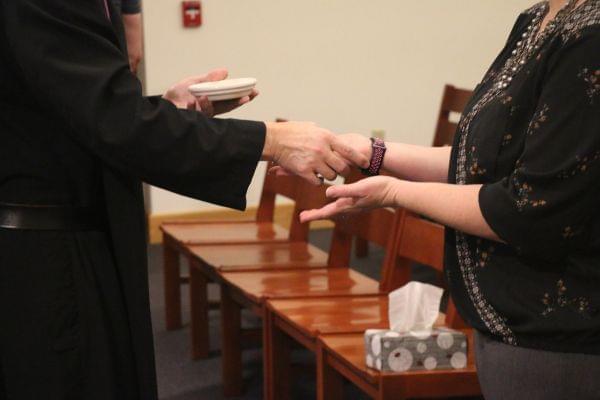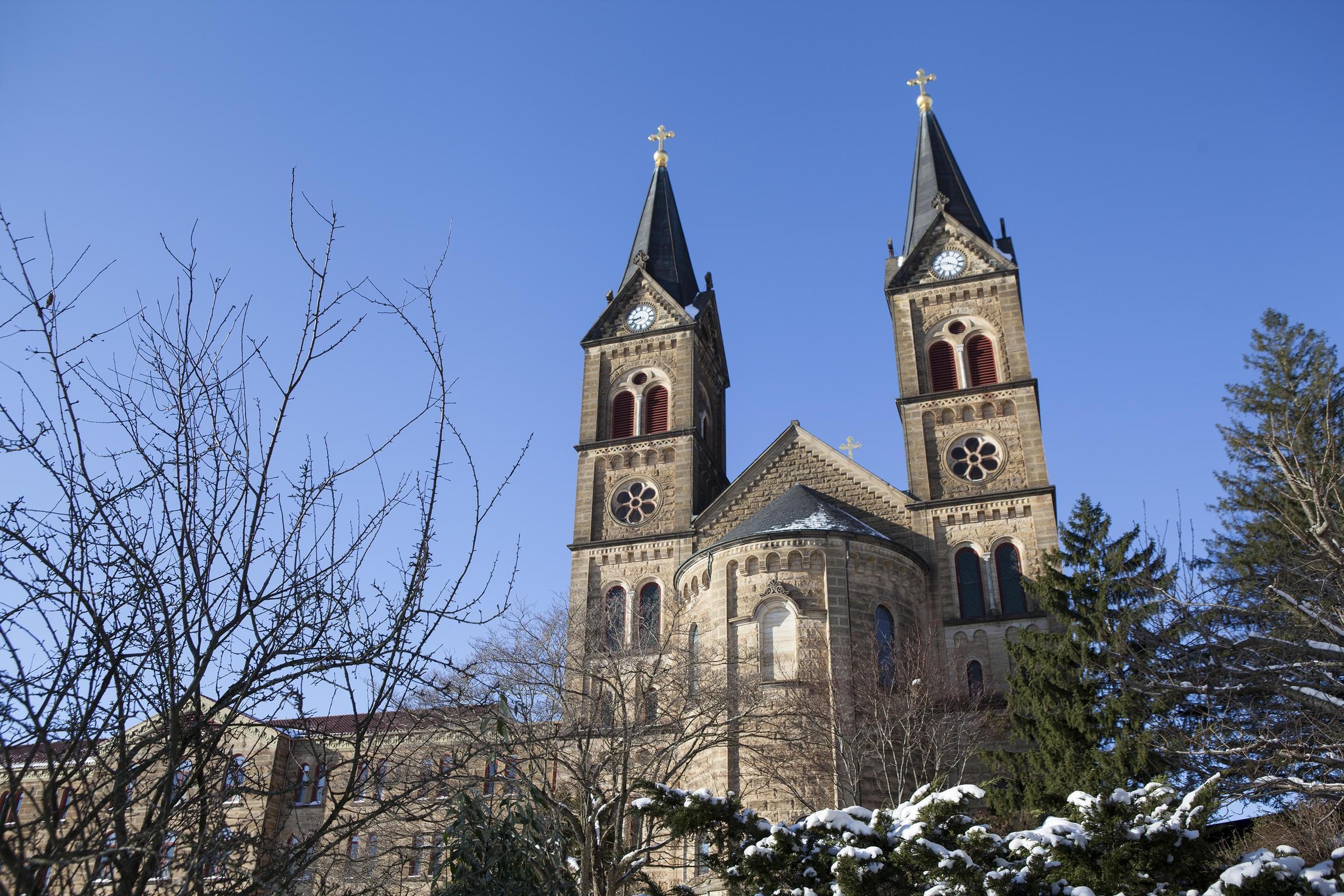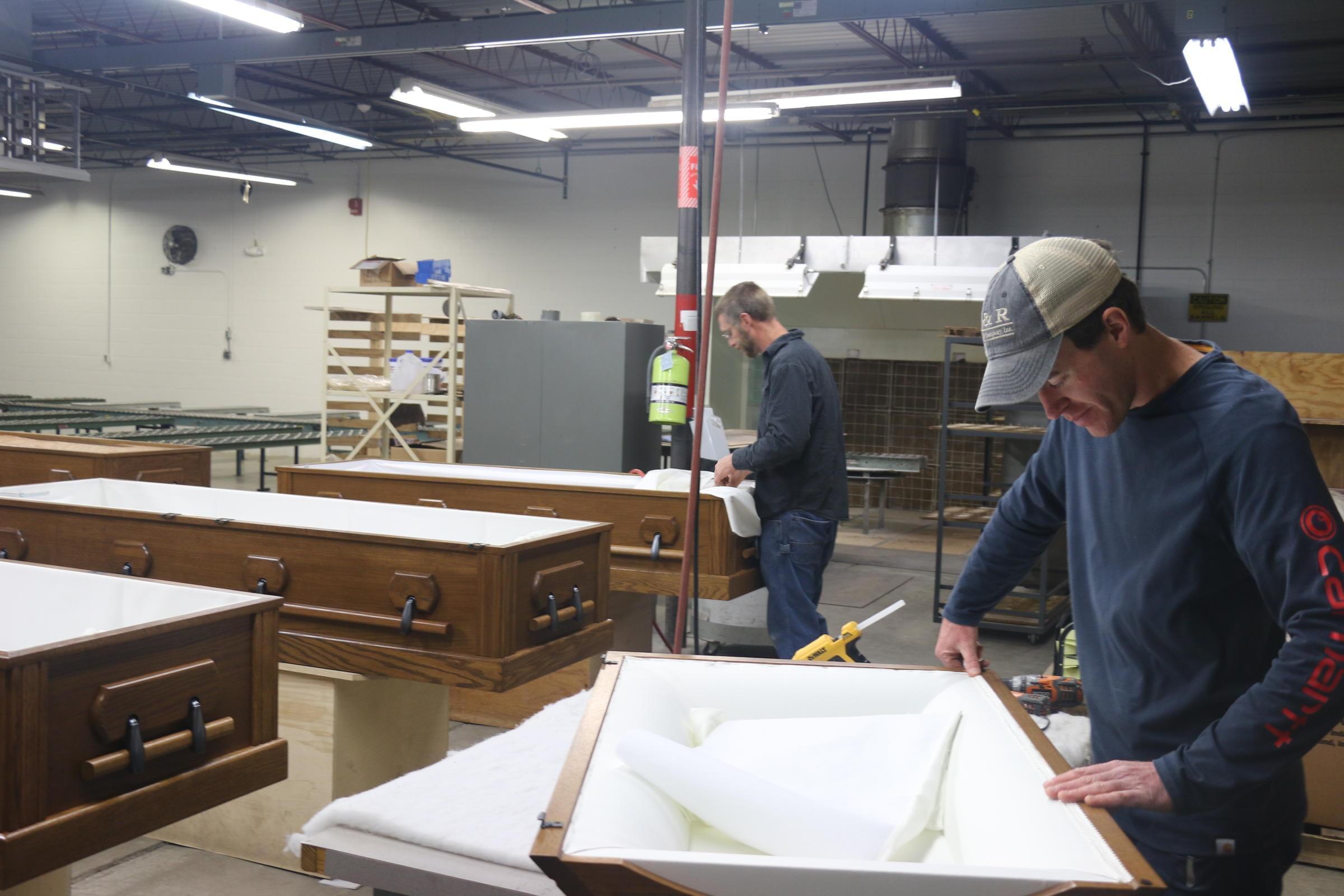Indiana Monastery Helps People Cope With Grief During Holidays

Isaiah Seibert/Side Effects Public Media
The impressive facade of the main church at Saint Meinrad Archabbey looks like it was taken straight out of Europe. Twin steeples topped by golden crosses loom over the rural Indiana landscape.
During the holiday season, it's a place of healing, as some St. Meinrad monks help people cope with their grief.
On a December night, about forty people fill a chapel in the archabbey retreat center. They sing hymns, say prayers, and listen to a homily. But there are no Christmas carols at this service. The mood is somber.

“We chose the middle of December in association with the winter solstice,” says Fr. Adrian Burke, a monk at St. Meinrad. Wearing his black habit and purple stole, he presides over the Service of the Longest Night, just a few days before the winter solstice.
“Literally the longest period of darkness in a 24-hour period throughout the year,” he said. “The idea is to connect with the sense of loss and grief.”
The Christian liturgical calendar already has a day to remember the souls of the departed: All Saints Day on Nov. 1.
But Fr. Adrian says having a special service so close to Christmas helps people address their grief in Christian terms. “It’s a time really to reconnect with the hopeful message of Christmas."
The Benedictine monastery has an unusual connection to death.
Almost two decades ago, a small carpenter shop was set up. It sells coffins to people who want something simple -- like what monks are buried in. On a recent day, the caskets are open inside the workshop as two local carpenters upholster them.
People who buy an Abbey Casket receive pastoral services as well. That often takes the form of written material, but it also includes the annual Service of the Longest Night, which attracts people from as far away as Cincinnati and St. Louis.
Pearl Gelarden has attended these services since her husband, Mike, died three years ago. “He died on Nov. 5 so everything was really fresh and new that first December,” she says.

She and her husband lived in a nearby town for 37 years. She was invited to the service because his casket came from St. Meinrad, but she says Fr. Adrian, a close family friend, made sure she was there.
She agrees that the holidays can be an especially hard time. “It helps you to be in contact with other people who are doing the same thing. We’re not all in the same stage of grieving, but it’s good to see all the stages.”
During the service, Fr. Adrian blesses oil and makes the sign of the cross on the hands of those who come forward.
“One of the church’s main symbols of healing and the power to transform our suffering into grace is holy anointing,” he tells the crowd at the service. The act serves as a reminder of the Catholic sacrament of anointing the sick, and represents healing from grief.
Fr. Adrian also blesses candles and encourages people to take them home. The candles burn for two weeks, time that can be used to pray for loved ones.
“The goal is to create a new normal, and that includes creating new traditions,” says Christen Baesel, a therapist at a clinic in nearby Evansville. She works with people who are grieving.
Baesel isn’t associated with St. Meinrad, but she and Fr. Adrian talk about grief in similar ways. He uses religious language, while hers is more clinical.
“A lot of people find comfort in creating traditions that honor the person they have lost,” she says.
Baesel has recommendations for anyone experiencing grief. She suggests journaling and writing letters to loved ones who’ve passed. She also likes to remind people they don’t have to look and feel their best just because of the holidays.
Fr. Adrian says professional counseling and spiritual guidance complement one another, but as a man of the cloth, he has a specific task. “It’s one thing to address the psychological faults and fissures,” he says, “but we’re not addressing the whole of who a person unless we also give them a spiritual message.”

This story was produced by Side Effects Public Media, a news collaborative covering public health.
Follow Isaiah on Twitter: @isaiah_seibert. 9(MDIwNjQ2MTYzMDE0NDM1NTQ0OThlYjEzMg001))

